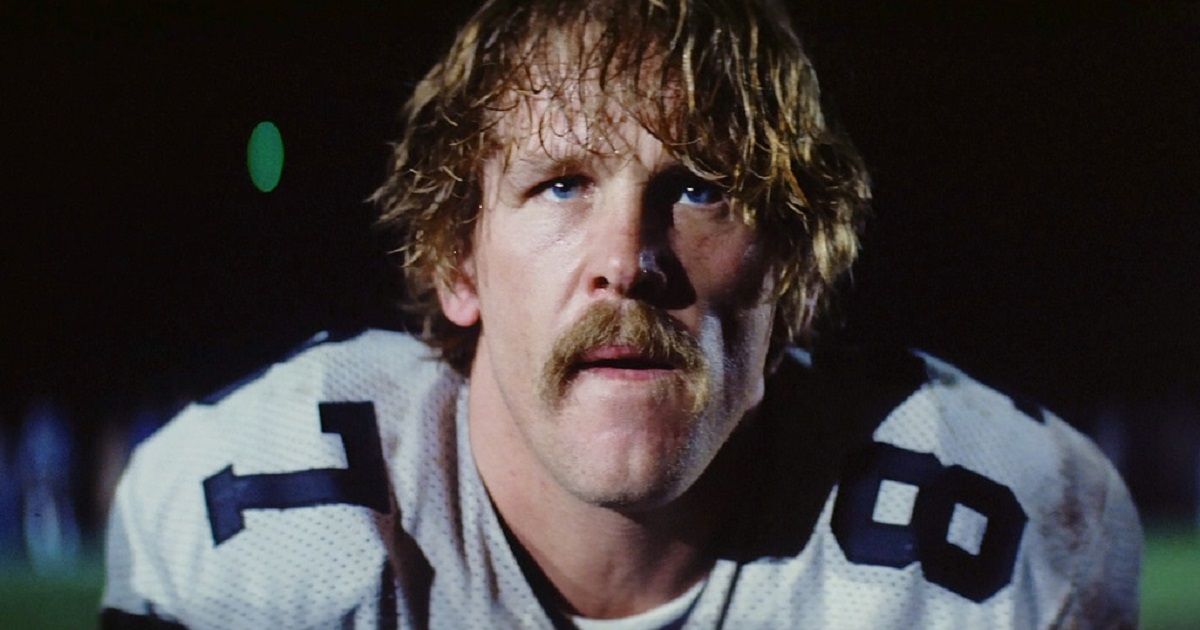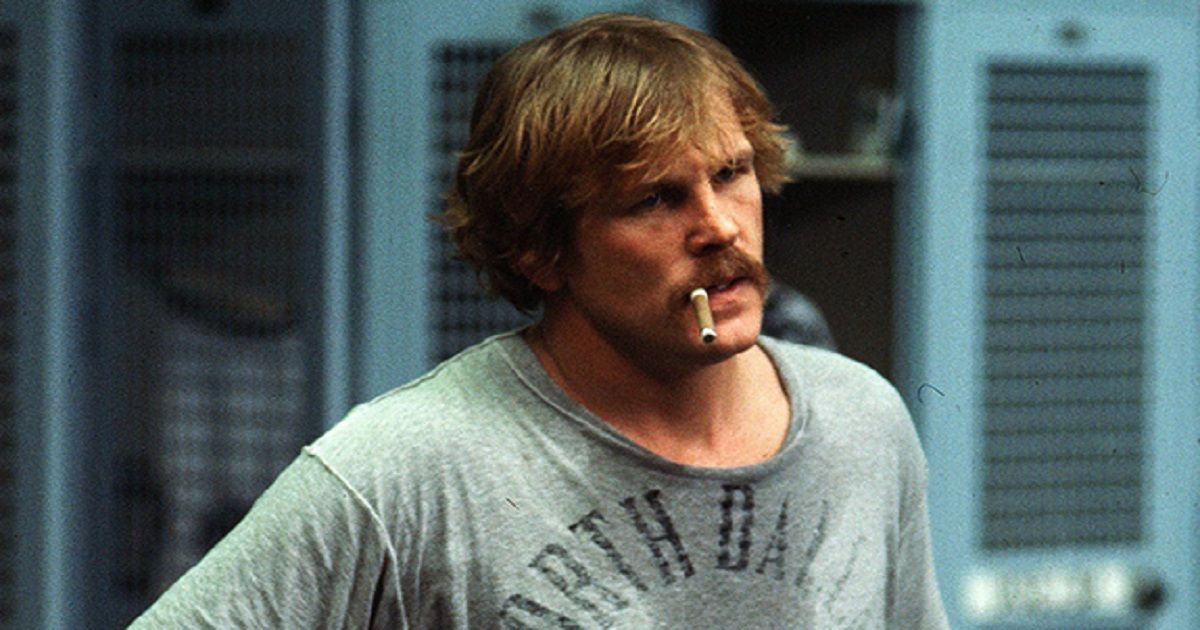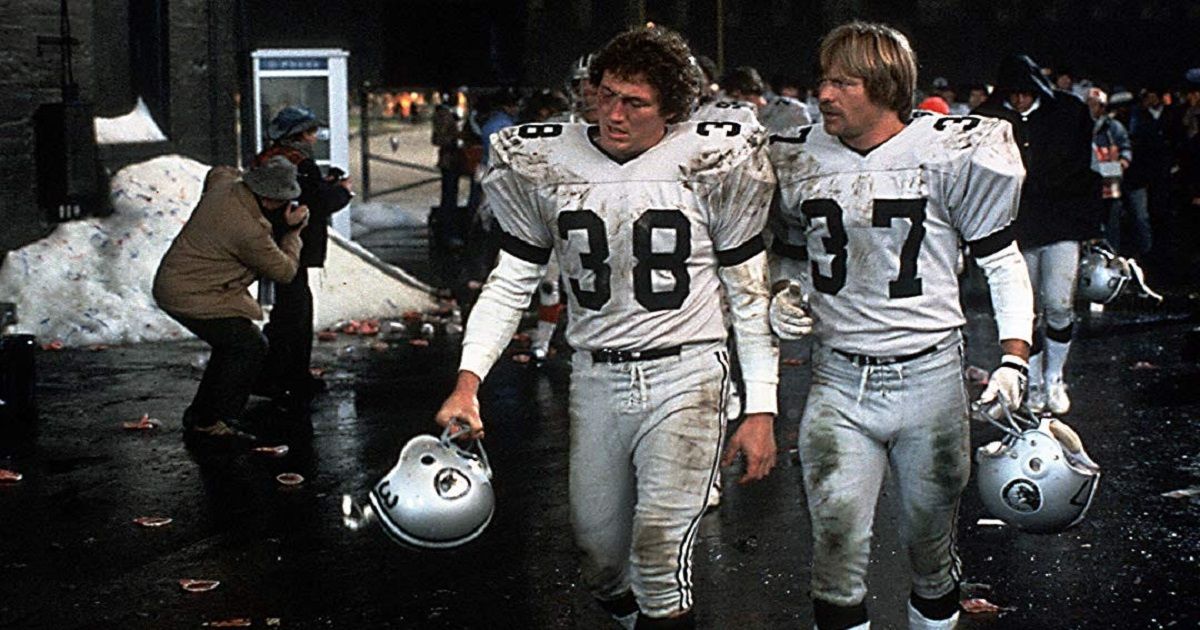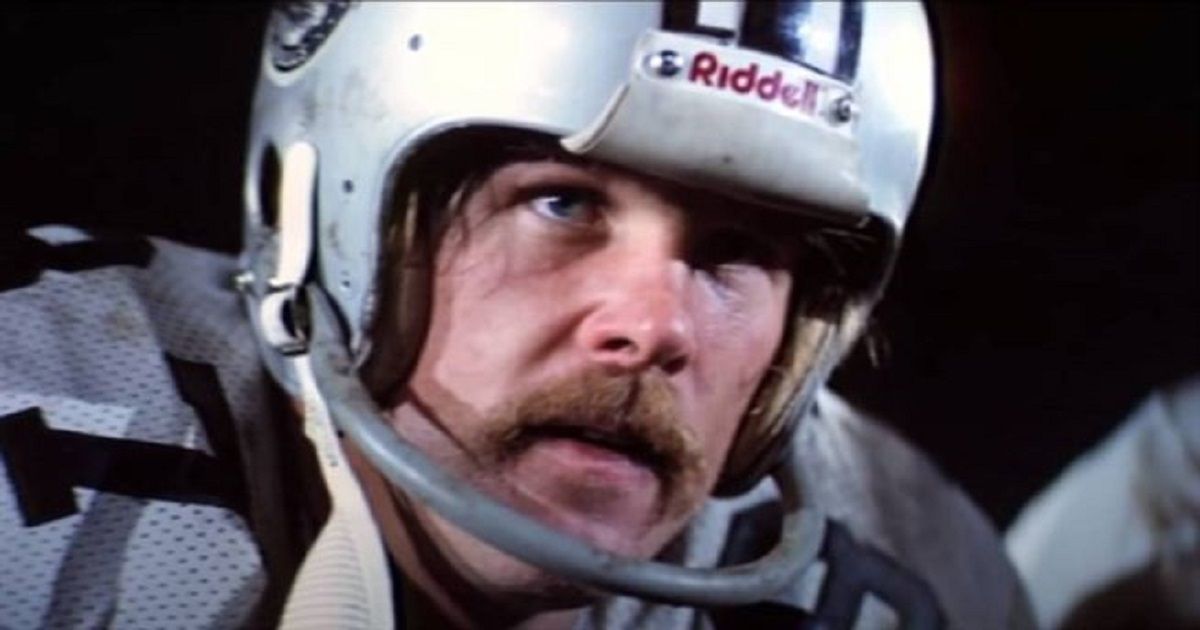Like all great sports films, North Dallas Forty isn’t primarily about sports but rather the lives and personalities of the players and the corporate and institutional pressures that conspire to make these players virtual hostages to their sport, which in North Dallas Forty is professional football.
North Dallas Forty, which is based on Peter Gent’s scathing 1973 novel of the same name, isn’t, unlike so many other sports films, focused on the result of a big game, as while the film does indeed culminate with an important game, the film’s human drama is so omnipresent throughout the movie that the result of the game doesn’t really matter.
North Dallas Forty stars Nick Nolte as Phil Elliott, a veteran wide receiver who embodies the horrific sacrifices that so many football players have to make throughout their relatively brief careers, not only in terms of being able to get out on the field to play but also so that they can simply get out of bed on the following morning.
As the brutality of professional football was hardly a secret when North Dallas Forty was released in 1979, the film is, if anything, more relevant today than it was at the time of its release, as while today’s football players, as well as the fans, are now much better informed regarding the long-term health dangers of playing football, the average life expectancy for a current veteran professional football player is still less than sixty years of age.
The Morning After
North Dallas Forty opens with Nick Nolte’s character, Phil Elliott, a wide receiver for the North Dallas Bulls professional football team, struggling to pull himself out of bed on the morning after another violent football game.
Racked with pain, surrounded by open alcohol and pain bottles, Phil, like an elderly man, eventually pulls himself out of bed and limps toward the respite of a bathtub, where Phil, after lighting up a joint, recoils at the memory of a pass that he inexplicably dropped in last night’s game but then subsequently smiles at the vision of an impressive catch that he made to win the game.
This opening sequence establishes the diabolical continuum of overmedication and pain that defines Phil’s existence, as while Phil’s body honestly and objectively recognizes the damage that football has done to it, Phil’s mind can’t conceive of a world in which his entire self-identity isn’t attached to football, which is, in Phil’s words, “the only thing I know how to do good.”
Playing the Game
As North Dallas Forty opens, Nick Nolte’s Phil Elliott has become what professional football, and certainly Phil’s North Dallas Bulls team, views as an endangered species: an aging, injury-prone player who has defied the heartless corporate structure of professional football by daring to speak his mind.
The nonconformist attitude that Phil displays in North Dallas Forty, specifically toward his coaches and team executives, is contrasted by the happy-go-lucky pragmatism that’s displayed by Phil’s best friend on the team, quarterback Seth Maxwell, who tells Phil that Phil “needs to play the game, and I don’t just mean the game of football.”
Indeed, while the sure-handed Phil is still an effective player, especially in terms of his willingness to do whatever it takes physically to enable himself to continue playing, Phil’s inability, or unwillingness, to adhere to the political realities of professional football has provoked his team to explore all possible options with which to permanently replace Phil.
Moreover, there’s a clear parallel between Phil’s non-conformist attitude and Nolte’s, as while the Oscar-nominated Nolte, whose performance in North Dallas Forty clearly established Nolte as a fine dramatic actor, gained acclaim and stardom in the 1980s and 1990s, this success didn’t eliminate the well-documented self-destructive tendencies that eventually made the notoriously hard-living Nolte his own worst enemy.
They Shoot Football Players, Don't They?
It hardly seems coincidental that the main character in North Dallas Forty, Phil Elliott, occupies the position of wide receiver instead of the more glamorous quarterback position since wide receivers have the shortest careers in the National Football League (NFL), as the average career of an NFL receiver lasts approximately two and a half years.
Needless to say, the NFL refused to cooperate with the making of North Dallas Forty, as evidenced by the fictional team name North Dallas Bulls, which is a clear reference to the Dallas Cowboys, whom North Dallas Forty author Peter Gent played for, as a wide receiver, in the 1960s.
However, nearly forty-five years after the film’s release, North Dallas Forty still resonates strongly today, specifically in terms of how the ensuing decades have brought increased awareness of the prevalence of brain degeneration in football players, as documented in the 2015 drama film Concussion.
Indeed, as North Dallas Forty ends with Phil contemplating a post-forced retirement life on a horse ranch with chronic but hopefully manageable pain, if this Phil were transported to the present, he would likely have to face a future in which he could no longer remember his own name, much less his career.




